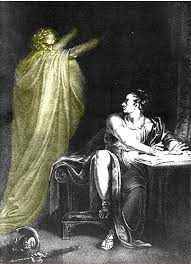Julius Caesar's interest in the occult had a lasting impact on Roman religion and mythology. Caesar's fascination with the supernatural helped to shape Roman beliefs about the gods and goddesses, and his interest in prophecy and fate influenced Roman philosophy and literature.
Caesar's visits to Egyptian temples and consultations with priests and astrologers helped to bring Egyptian religion and mythology to Rome. Egyptian gods and goddesses, such as Isis and Serapis, became popular in Rome, and Roman religion began to incorporate elements of Egyptian mythology.
Caesar's interest in prophecy and fate also had a significant impact on Roman philosophy and literature. The Stoic philosopher Seneca was particularly influenced by Caesar's belief in fate, and his writings on the subject had a lasting impact on Western philosophy.
Caesar's interest in the occult also had an impact on Roman literature. The works of poets such as Virgil and Ovid incorporated elements of astrology and prophecy, and the theme of fate was a common element in Roman literature.
In conclusion, Julius Caesar's interest in the occult had a lasting impact on Roman religion, philosophy, and literature. His fascination with the supernatural helped to shape Roman beliefs about the gods and goddesses, and his interest in prophecy and fate influenced Roman philosophy and literature for centuries to come.
Works Cited:
Beard, Mary. The Roman Triumph. The Belknap Press of Harvard University Press, 2009.
Grant, Michael. The Twelve Caesars. Penguin Classics, 2003.
Roller, Duane W. Cleopatra: A Biography. Oxford University Press, 2010.








